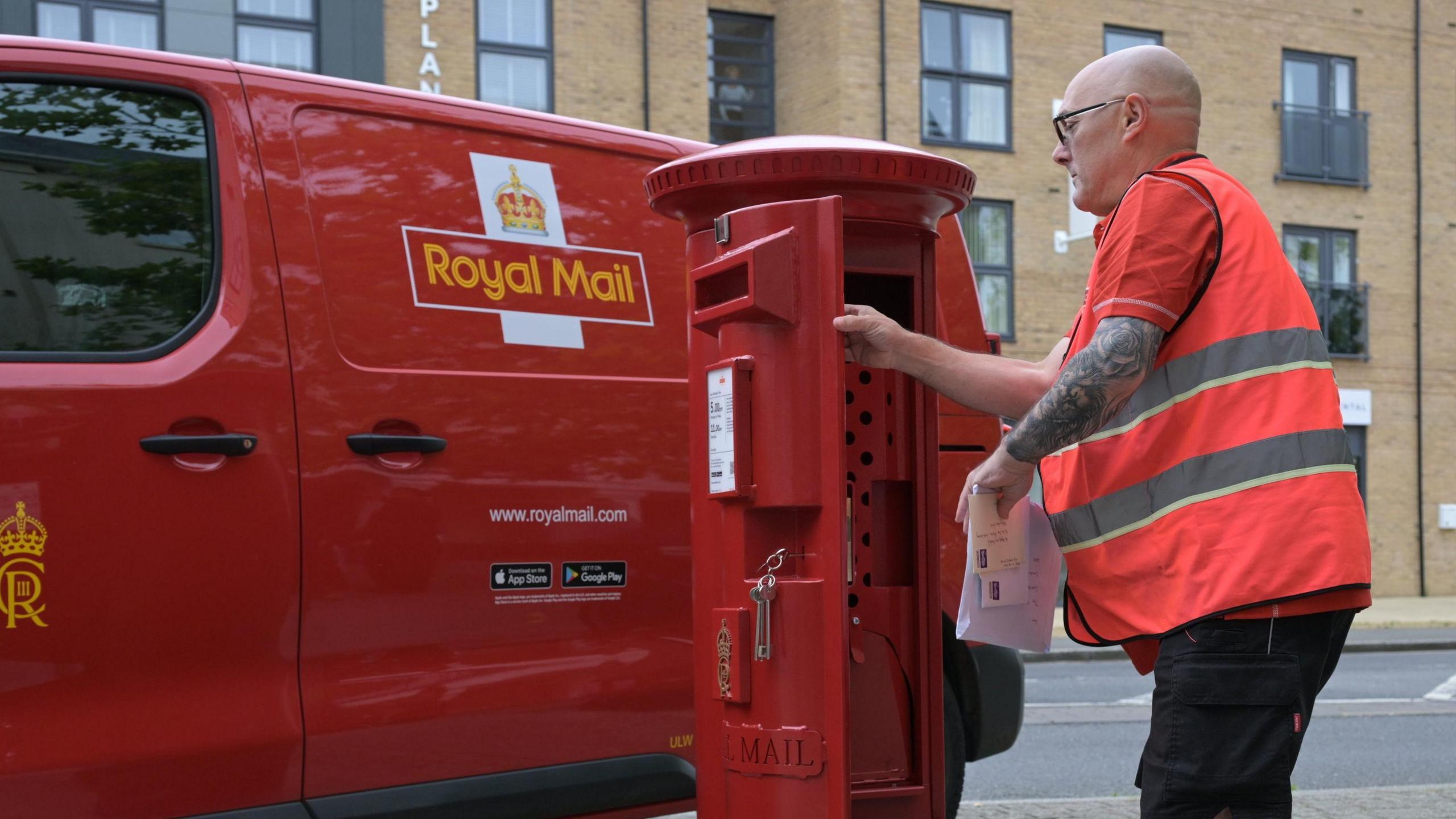Royal Mail fails to meet spring delivery targets

- Published
Royal Mail delivered less than 80% of first class post on time between April and the end of June, missing key targets set by the communications watchdog.
In an update, external, it said 79.1% of first class mail arrived within one working day in the three months to 30 June.
The regulator Ofcom says that 93% of first class mail must be delivered within this timeframe, excluding the busy Christmas period, and the Royal Mail performance "hasn't been good enough."
It has been "pressing the company" on what it is doing to improve its performance, an Ofcom spokesperson added.
Ofcom has been investigating Royal Mail for missing its delivery time targets for the year to March 2024.
Royal Mail's chief operating officer, Alistair Cochrane, said delivering a high quality of service "continues to be our top priority and I am pleased this ongoing focus has ensured improvements across the quarter".
"We know there is more to do and will continue on this path," he added, saying the company would enact "steady changes" to its operations.
Ofcom acknowledged that the Royal Mail has updated its improvement plans.
"It's made some progress recently, but there's still more to do. We'll continue to hold Royal Mail to account, and take action on behalf of its customers," an Ofcom spokesperson added.
Read more on Royal Mail
Royal Mail could deliver on three days, says Ofcom
- Published24 January 2024
'Undelivered letters meant my son missed his surgery'
- Published26 February 2024
Royal Mail owners agree to £5bn takeover offer
- Published29 May 2024
Royal Mail said 93.5% of first class letters arrived within two days, which is an improvement on the same period last year.
But it also said that it had missed its 98.5% target of second class post being delivered in three working days.
It managed to deliver 94.1% of second class post in this timeframe.
Ofcom fined the Royal Mail £5.6m for failing to meet its first and second class delivery targets in the last financial year.
Czech billionaire and entrepreneur Daniel Kretinsky is currently in the process of buying the postal service for £3.57bn, although this deal is not yet complete due to the Cabinet Office launching a review into the bid.
Royal Mail is said to be adapting to declining volumes of letters and a bigger demand for large parcels and next day deliveries.
In recent years, the volume of letters being posted has plummeted, with half the number being sent compared to 2011 levels, while parcel deliveries have become more popular - and more profitable.
The company, which was split from the Post Office and privatised a decade ago, is legally obliged to deliver a one-price-goes-anywhere universal service, which means it has to deliver letters six days per week, Monday to Saturday, and parcels Monday to Friday.
Royal Mail previously said its current delivery network was "not sustainable" and that reform was "urgently needed".